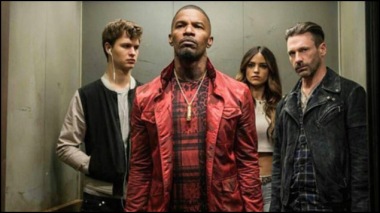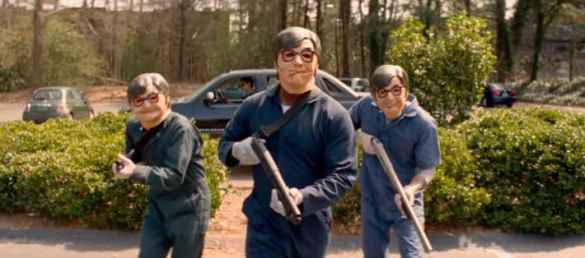
I’ve talked about rejection before, and I think anyone who talks about writing (however infrequently) has to address rejection, because for the majority of writers it is just one of those immutable facts of life. As always there are exceptions, but they are rare, and whilst one may feel an annoyance with the lucky buggers, I do wonder if not getting rejections— if having your first story/book picked up, then the next one and the next one, without ever getting that hit of disappointment— is a good thing.
Don’t get me wrong. Rejection is horrible, I’ve talked before about how being a writer is a bit like being a boxer getting pummelled by punch after punch, but can you imagine a boxer who never takes a hit? Some kind of inhuman pugilist who’d make Muhammad Ali seem flat footed, a preternaturally fleet-footed ninja who no one could lay a glove on. Know what, eventually even such an individual will take a hit, and I’d be willing to bet that one punch, however light, will drop them like a stone.
Nietzsche’s assertion that what doesn’t kill us makes us stronger is naïve in the extreme, but on occasion there is some truth behind the notion, in particular when it comes to rejection. Just as eschewing shoes (eschoeing?) will eventually lead to the skin on the soles of your feet hardening, then hopefully rejections, assuming you don’t buckle and quit after the first few (and I would never begrudge anyone who does that because rejection is like a knife to the heart) will harden your heart and mean future rejections maybe won’t hurt quite so much.
Don’t get me wrong though, they’ll still hurt, and maybe they always should, but as counterintuitive as it sounds rejection can be a positive, I know I’ve channelled the despair I’ve felt over having been rejected in many ways. There’s the visceral “well, I’ll show you!” response to rejection, and often one of the best ways to handle a rejection is to take that story and fire it off towards someone else, and I think that’s a perfectly acceptable way to respond. The only note of caution I’d sound is that before you do you should always give a moment’s consideration to whether you can make it better first. Have you proof read it enough, could you polish some more? At the end of the day with any work of art, be it a sculpture, a musical composition, a painting or a story, there’s always a danger of it never feeling finished, but by the same token it would be annoying if a great story kept being rejected because publishers felt your grammar and spelling weren’t up to scratch.

J.Kitten. Rowling suddenly had a new idea…
Rejection can prove a positive in other ways. In the last week I’ve been hit with a double whammy of rejection. Both were stories I felt were good, and both were stories that had been with publishers long enough that I’d started to feel overly hopeful (never a good idea, but there is some truth in the notion that the longer someone holds onto your story the more they like it) so in both cases it was a hard pill to swallow when the “Thanks, but no thanks,” came back. What’s curious is that in both cases, within an hour or so of getting the rejections my mind came up with new story ideas, one for each rejection, almost as if subconsciously I was saying; “Ok, you didn’t like that story but how about this one?”
As a wordsmith it’s quite obvious that the word rejection and the word injection are the same if you remove the first two letters, so next time you get a rejection take away the RE and add an IN, make it an injection of something; whether it’s a desire to polish your story further, whether it’s a sheer bloody minded belief that someone else will like your story so you send it somewhere else, or whether you channel your disappointment into firing your imagination to come up with a brand new story.
Oft times I find rejection prompts all three of those reactions in me, and I’m not sure this was always the case, but being a writer is often about evolution, not only in what we write and how we write, but also in how we react to what people feel about our work, whether that’s a positive or a negative.
In conclusion I’ll circle back to the use of my boxing metaphor once more. In Rocky 3, Rocky was beaten by Clubber Lang, and in order to come back and reclaim his title he had to learn to fight a different way, knowing he couldn’t beat Clubber in a lengthy fight, he had to change his approach and beat him quickly. He took his defeat, his rejection, and turned it around, used it to inject something new into his technique.
Keep punching folks, and if they do knock you down, just make sure you get back up again before the count hits ten!

I pity the fool that rejects my stories!







